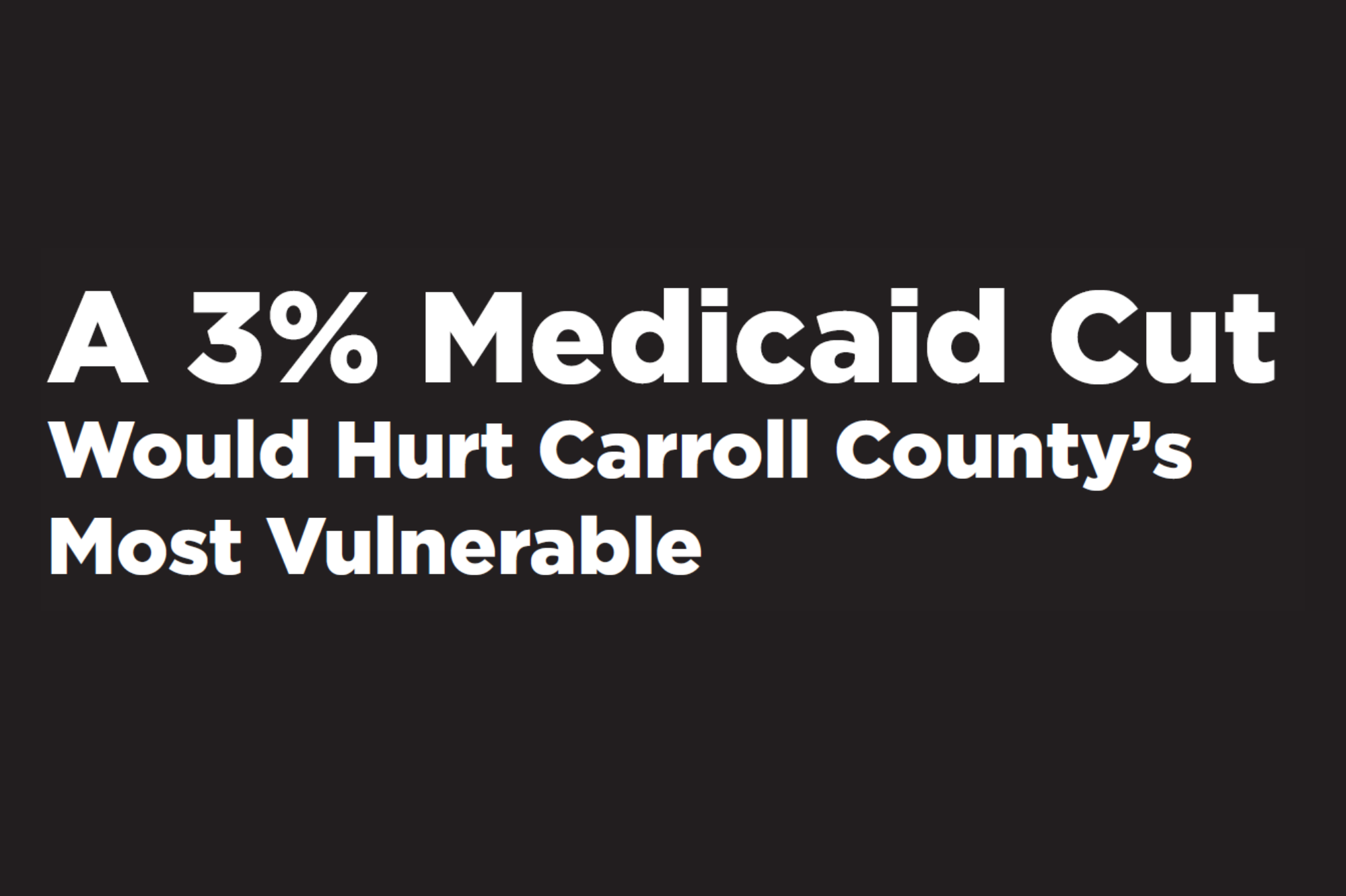3% Medicaid Cut Threatens Home Care for Carroll County’s Most Vulnerable
May 1, 2025
)
By Sandy Ruka,RN, MSN – Executive Director
Visiting Nurse Home Care and Hospice of Carroll County and Western Maine
“Without Medicaid help, I wouldn’t be able to stay in my home. When they talk about budget cuts, it feels like people like me don’t matter.”
- Janine LaPete, Conway, NH
These are the words of Janine LaPete, a North Conway resident who relies on New Hampshire’s Medicaid Choices for Independence (CFI) program. Like many in our community, Janine lives with chronic illness and needs regular support to stay safe at home. The CFI program provides that lifeline. But a proposed 3% cut to CFI funding now puts that care—and Janine’s ability to remain in her home—at risk.
This proposed budget cut is a move that threatens the very foundation of home-based care in Carroll County. This decision won’t just affect numbers on a spreadsheet. It will affect people. Our people—your neighbors, friends, and family members—who want nothing more than to remain safely in their homes. People like Janine and these three other community members we serve.
“I was in a nursing home after my stroke. CFI brought me home and helped me live on my own again.” — 76-year-old North Conway resident
“Medicaid paid for my cancer treatment, my medications, everything. I wouldn’t be here without it.” — Erica Calderon, Conway
“CFI helps me live alone and stay safe. Without it, I don’t know what I’d do.” — Ray Lawrence, Conway
At VNHCH, we are the only agency providing skilled nursing care to Medicaid patients in their homes in northern Carroll County. If we’re forced to cut back, there is no Plan B. There is no other agency ready to step in.
Let me explain this clearly:
- CFI is long-term Medicaid.
- It helps elderly and disabled residents avoid nursing homes.
- Only one nursing visit per week is currently provided. Our agency is reimbursed below cost for this one visit.
- We often provide additional visits as necessary—at no charge.
- A 3% rate cut means we are being paid even less for the care we’re already subsidizing.
Right now, New Hampshire’s Medicaid reimbursement rates are among the lowest in the country. According to our statewide association, agencies are paid below the cost of providing care. Who can operate under that? We already can’t keep up with rising costs for fuel, insurance, and wages for trained clinical staff. This proposed reduction will push us past the breaking point.
We’re already offering care that the current system doesn’t fund. Nurses visit to help patients manage medications, treat wounds, monitor chronic conditions, and prevent hospital visits. Many of those visits don’t meet the qualifications for reimbursement—but we make them anyway, because our patients need us.
The CFI program is a lifeline. Not just for the patients, but for the entire healthcare system. CFI saves the state money. Here’s the math:
- A year in a New Hampshire Medicaid-funded nursing home costs $110,360 (Source: seniorliving.org)
- A full year of CFI Medicaid services costs $25,203 (Source: NH DHHS)
That’s a savings of over $85,000 — per person.
Why would we cut a program that is more compassionate, more cost-effective, and overwhelmingly preferred by the people it serves?
Let’s be clear: this isn’t just about numbers. It’s about the growing crisis in our workforce. Direct care workers—nurses, aides, and therapists—are doing complex, skilled work. But if the state reduces reimbursement, agencies will have to reduce hours, eliminate services, or walk away from entire regions—because we simply can’t afford to continue delivering care at a loss.
If these cuts go through, we’ll have to make difficult decisions — and people will lose access to care.
If we walk away, there is no one else.
So we are asking—urgently—for our community to speak up.
Email our governors and state senators by May 8 and tell them not to cut Medicaid CFI rates:
- Governor Kelly Ayotte – kelly.a.ayotte@governor.nh.gov
- Senator David Rochefort – david.rochefort@gc.nh.gov
- Senator Mark McConkey – mark.mcconkey@gc.nh.gov
Our lawmakers need to see the faces behind the funding. These are real people, not line items. We urge Governor Kelly Ayotte, and Senators David Rochefort and Mark McConkey to reject cuts to the CFI program and protect the care that keeps people safe, supported, and at home.
We’ve spent years building a model of care that works. One that’s local, personal, and deeply rooted in the values of our rural community. It keeps our elders where they belong—at home, surrounded by the people and places they love.
